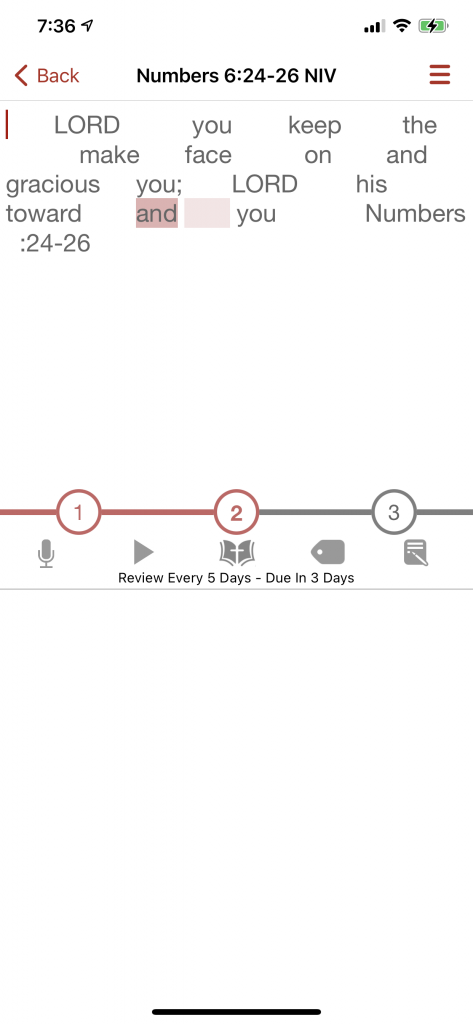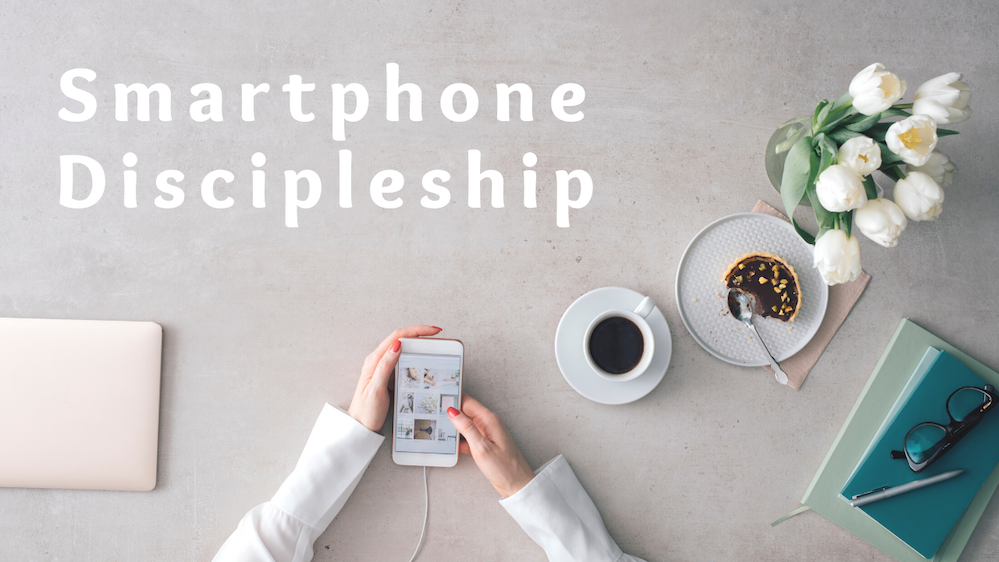Smartphone Discipleship
I hear a lot of talk about how dumb and unspiritual our phones are making us. There is surely some truth in that. In this article, I want to focus on how our phones can make us as small group point people, closer to God, closer to each other, and better disciples.
Smartphone Quiet Time
The fundamental discipline of the Christian life is the Quiet Time. It is the single discipline that leads to everything else. Paul spoke of the “knowledge of the truth that leads to godliness.” (Titus 1.1). My definition of a disciple is someone regularly exposes themselves to Word with a view to application in the power of the Holy Spirit. It all starts with regular exposure to the Word.
Donald Whitney describes the importance of exposure to the Word this way:
No Spiritual Discipline is more important than the intake of God’s Word. Nothing can substitute for it. There simply is no healthy Christian life apart from a diet of the milk and meat of Scripture. The reasons for this are obvious. In the Bible God tells us about Himself, and especially about Jesus Christ, the incarnation of God. The Bible unfolds the Law of God to us and shows us how we’ve all broken it. There we learn how Christ died as a sinless, willing Substitute for breakers of God’s Law and how we must repent and believe in Him to be right with God. In the Bible we learn the ways and will of the Lord. We find in Scripture how to live in a way that is pleasing to God as well as best and most fulfilling for ourselves. None of this eternally essential information can be found anywhere else except the Bible. Therefore if we would know God and be Godly, we must know the Word of God—intimately. — Donald S. Whitney, Spiritual Disciplines for the Christian Life (Colorado Springs, CO: NavPress, 1991), 28.
Andy Stanley describes their discipleship strategy this way:
From the beginning we have looked for ways to coax, bribe, bait, and equip everybody from kindergarten up to engage in some kind of private devotional exercise. — Andy Stanley, Deep and Wide: Creating Churches Unchurched People Love to Attend (Grand Rapids, MI: Zondervan, 2012).
I wrote a book a few years ago called The Habit of Discipleship. The habit. One habit. One. And, it is a habit. Not so much a discipline in the sense of something I don’t want to do but force myself to do anyway. It is the habit of starting my day with my Bible on my lap. It is the habit of praying about what I read about. This one habit—the Christian Quiet Time—changes everything.
I have my Quiet Time on my phone. It is not the only way to do it. But, it is best way for me.
My life was forever changed a few years ago by reading something else by Donald Whitney—his book, Praying the Bible. I came away with this nugget: Read the Word; pray about what you read about. God speaks to me through the Word. I speak to Him through prayer. Meditation on the Word could be described as praying about what you read about.

Memory is like a muscle. No pain; no gain. Unless the weight is heavy enough to make you struggle, you don’t grow any muscles. If it is too heavy, it crushes you. Memory is not created by reading a verse over and over. Memory is created when you struggle to recall a verse and then recall it.
If you study the screen capture, you might can work out the verse: Numbers 6:24–26 (NIV) The Lord bless you and keep you; the Lord make his face shine on you and be gracious to you; the Lord turn his face toward you and give you peace.
I go through a hundred or so verses each morning and then pray about what I read about. The app also keeps up with what verses need to be reviewed when. This would be almost impossible without a smart phone.
I also read from one or more plans on the YouVersion app. Great stuff.
Smartphone small group connection
I had a conversation with Steve Gladen a few months back and was taken aback when he said, “Our group hasn’t met in months, [due to Covid] but we are very connected.” It got me thinking about the many ways our phones help us connect with others.
Our group is much better connected because of smart phones.
Relationships are in the minutia. The closer I am with someone, the more I connect around the gritty details of life. For strangers, I say I am fine, everything is fine. With my close friends, I talk about the details of my life.
I am in a couple of text groups that make this easy to feel connected this way. Often, we share things that don’t deserve a phone call, but the connection is nice. I see the pictures on Facebook and talk about it when we meet.
People seem to be talking a lot these days about online groups vss. in person groups. It seems to me that groups will nearly all be both going forward.
Smartphone worship
Some of the best worship times I have experienced have been on my phone. (Sometimes I upgrade the experience to an iPad.)
I am thinking now of Chris Tomlin’s rendition of Crown Him with Many Crowns. I remember the day that came out listening to that on my phone and just being blown away. I listened to it over and over—probably 30 minutes or more. It was, for me, a near-perfect worship experience. I plan for us to watch the video in our group this week.
I don’t know about your church, but in my church we don’t all like the same music. Hey, my wife and I don’t like the exact same music. When I pick the worship songs on my phone, I get to pick the songs that are the best worship songs in the world—for me. I am not distracted by wondering how anyone else might feel about this song.
Of course, there is something about worshiping together, and I like that too. But some of the best worship experiences I have had were with a good pair of headphones and an iPhone. And, people who worship well at home worship well at church.
I close with a quote from Ken Hughes:
Today’s smartphones and computers and tablets and the like make it possible to listen to God’s Word read amid almost any setting or activity—lying down, sitting, walking, hiking, running, biking, commuting, and laboring (painting, light construction, engine repair, graphic design, landscaping, farming, training, working out, you name it). There are athletes, tradesmen, and doctors who, like the Psalmist, overflow with wisdom and understanding because they make it a yearly priority to listen to the whole counsel of God. — R. Kent Hughes and W. Carey Hughes, Disciplines of a Godly Young Man (Wheaton, IL: Crossway, 2012), 68.
Phones have their downsides. But, a lot of good can come from them as well. For me, it is better worship, better connection, better quiet time, better discipleship.
Josh Hunt
Good Questions Have Groups Talking





